We are in the process of creating a comprehensive national DNA database of the Southern African elephant population. As elephant populations in Africa continue to both decline and increase rapidly in different regions, it is vital to create a genetic landscape of the herds to monitor the levels of genetic variation in order to manage elephants wisely into the future using knowledge gained. This project will focus on inbreeding in overpopulated reserves and areas that may adversely impact the behavior, health and reproductive success of the species.

DNA project
We are creating a DNA database of the South African elephant population
to safeguard the future of the species.
With the threat of a genetic bottle neck, it is vital to understand the amount of inbreeding on local reserves to help managers make informed breeding and management decisions. The database will further allow for increased traceability of illegal ivory in the markets, as the information will be available to law enforcement for tracing confiscated ivory and help pinpoint poaching hot-spots in the country and to identify possible trafficking routes. The elephants’ DNA will be extracted and profiles created which will be used to measure inbreeding, relatedness, and innate immunity of the population. Reports of this information will be made available to owners to guide management decisions, and law enforcement will have access to the secure database for future criminal prosecutions.
Skin biopsy samples will be collected from elephants on private reserves, zoos, and parks in South Africa.
For each animal darted, information on individual and family history as well as identifying characteristics will also be recorded e.g. tuskless. All samples will be collected following the chain of custody standard operating procedure (SOP), approved by the Scientific Authority as well as the police, and subsequently stored and processed at the genetics laboratory at the National Zoological Gardens in Pretoria. Each sample will be divided into two equal sections; one will be used immediately for analysis and the other will be stored for future use in research and criminal cases.
The information collected will then be compiled onto the National Zoological Garden’s database and mirrored in a secure, online Cloud managed by North Carolina State University available to elephant managers, law enforcement, researchers, and law making organizations throughout the world.
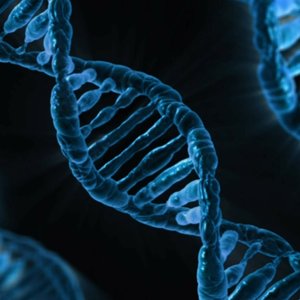


Project Details
Aim and objectives
The overall objective of this study is to create a DNA database of the South African elephant population to assist with elephant management practices in reserves, as well as to offer a deterrent/decrease the value of illegally obtained elephant ivory, which will link back to a specific population and thus identify origins. In addition to collecting individual information (physical features, history, location, and genetic information), the inbreeding coefficient, relatedness, and innate immunity of each herd will be calculated. This data will provide valuable indication of the extent to which populations on the small reserves throughout South Africa are inbred, and how many are related to the Kruger Park elephants as well as elephants in other countries. Since inbreeding can weaken disease resistance of mammals, the innate immunity of elephants sampled will be calculated to find the extent of influence, if any, that the segregation of the elephant population onto small reserves has had on their immune systems. Linking confiscated ivory to elephants in the database will further provide insight into the hot-spots and the rate of poaching in South Africa.
Methods
For the creation of the database, biological samples from African Elephants of both sexes and all ages on private and public reserves and in captive facilities in South Africa will be collected. The aim is to collect samples from roughly 80% of the 56 small parks and reserves in South Africa. Due to the size of some parts such as the Kruger population, bulls and matriarchs will be targeted for sample collection.
Identifying characteristics, including ear traits, tusk length, and tail traits will be photographed and noted on a data sheet. Skin biopsy samples (~200mg) will be collected by a veterinarian using a biopsy dart in the presence of a conservation officer. Samples will be placed in 80% ethanol for transport to the laboratory. Any captive animals or those already tranquilized for transport will also receive blood draws, saliva swabs, and hair draws, performed by the veterinarian (blood). All samples will be collected following chain of custody protocol approved by the Scientific Authority.
Darts made specifically for the project will collect a biopsy sample and mark the elephant so that it is not sampled twice. The dye will further contain an anti-biotic to prevent infection
Analysis
Once a sampling event has taken place, samples are transferred to the National Zoological Gardens of South Africa (NZG) in Pretoria, where genetic analysis is conducted. Tissue samples are divided into 2 parts, one of which is analysed and the other which is stored for use in court cases or future research. DNA is extracted and genotyped at 30 microsatellite loci, which have been specifically designed for elephants. Innate immunity is tested using 9 toll-like receptor (TLR) genes, which are capable of viral and bacterial pathogen recognition.
Benefits of the project
The DNA database will allow reserve managers to make informed breeding and management decisions about their elephant populations. Information obtained during this study will be available to interested parties such as law enforcement agencies, vets, reserve owners and managers, conservation officials and researchers. Samples obtained and added to the database will allow for cross-referencing with future confiscated ivory and hopefully a reduction in poaching statistics. Further research into immunology will be possible, allowing for more informed management decisions regarding a facility’s elephant population. Problem elephants can be moved to reserves where they can contribute to genetic diversity which may also decrease behavioural problems often observed with young bulls becoming problematic and infantaside.

Project Team
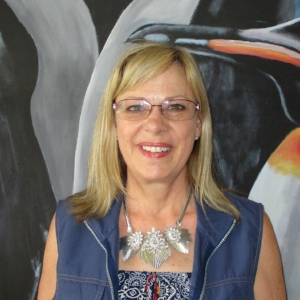
Professor Antoinette Kotze
Coordinator for South African institution: National Zoological Gardens of South Africa
The National Zoological Gardens’ mission is to contribute to viable wildlife populations within the biodiversity conservation landscape by undertaking strategic, innovative, short and long term interdisciplinary research in cooperation with other Zoological Gardens, conservation agencies, and academic institutions. Their core functions are to generate knowledge for conservation, build research capacity through post-graduate training, and provide research facilities and infrastructure to the research community. In addition, they participate in cooperative species management with zoos worldwide, as well as disease surveillance and monitoring for zoo and wild animals. As a national research entity, they focus on the conservation of all native South African species, with special attention for threatened species. Their central location is essential to the logistics of the DNA project, which, while currently focused in the Limpopo region, will expand to cover all provinces of South Africa. The NZG is represented by professor Antoinette Kotze. By education professor Antoinette Kotze holds a PhD, by inclination and experience, she is a scientist, passionate about biodiversity and conservation. Professor Kotze currently holds the position of manager for research and scientific services at the national zoological gardens of South Africa. She worked extensively with wildlife and indigenous farm animals for more than 30 years. In a number of defining moments in her career, she was a pioneer and a catalyst, spearheading transformation projects, which have added new skills to her portfolio, ranging from negotiation skills, brokering partnerships, and adding forensics and wildlife trade in particular on a national and international level. Professor Kotze serves on several national and international forums such as IUCN specialist groups.
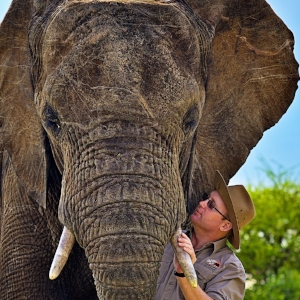
Sean Hensman
Director: The Rory Hensman Conservation and Research Unit
Sean Hensman graduated from Canterbury Christ Church University in Kent, UK with a BA/BSc in tourism and leisure with business management. His energy and passion, coupled with his innovative ideas since he was a young man, have carried through to today, where he strives to develop a tourism, research, and conservation product that promotes educational values as well as highlights holistic management and protection values. Sean has extraordinary vision and recognizes that the key to solving the plight of African wildlife is to understand the preservation and upkeep challenges facing today’s wildlife and conservationists in an ever-changing, modernizing, and overpopulating Africa, thereby giving wildlife increased value to humans. Sean recognizes that creating many values for elephants will encourage people from every walk of life to want to look after elephants and other species, and hence has actively pursued research in various fields; from the uses of elephants as bio- detectors (tracking poachers, remotely detecting landmines, ied’s and drugs to scent matching criminals to crime scenes) to communication and human-elephant conflict resolutions. His life’s work is about holistic conservation assisting all of humanity ensuring that people can benefit from, and thereby appreciate, African wildlife for many years to come.

Professor Matthew Breen
Coordinator for USA institution: Forensic Sciences Institute, North Carolina State University
Dr. Matthew Breen is a member of the forensic sciences institute at North Carolina State University, focusing on wildlife forensic technologies. Dr. Breen has a PhD in genetics (1990) and began his career working with the human genome project at the UK medical research council’s human genetics unit. He relocated to Australia where his team developed genetic tools for identification population assessment of African wildlife. His 30-year career has focused on animal and comparative genetics, leveraging emerging technologies to aid various areas of animal health and population management. Dr. Breen is a professor of genomics and holds the prestigious oscar j. Fletcher distinguished professor of comparative oncology genetics in the dept. Of molecular biomedical sciences at the NCSU college of veterinary medicine. He is also a member of the NCSU comparative medicine institute (CMI) the NCSU genetics program in the college of science, and the cancer genetics program at the University of North Carolina’s Lineberger comprehensive cancer center.
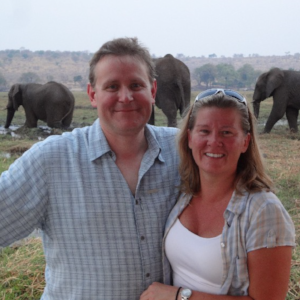
Stephen Lee
Chief Scientist: Edge Conservation Group/University of North Carolina Chapel Hill Institution
The Edge, Ecological Defense Group is an ambitious counter-poaching organization providing support for wildlife in Africa through research, technology, education, and security. Founded in 2017, their team has a diverse background in technology, biology, genetics, international business, and special operations which we formulate into a unique approach for each mission. They emphasize conservation through education, establishing partnerships on the ground, using a next-generation approach, and applying a big picture view. Dr. Stephen Lee has spent the last several years conducting research on elephants and technology for counter-poaching and wildlife conservation. His research and programs focus on partnering multiple organizations with common technical goals to create a community of interest and leverage resources for conservation and wildlife security in sub-Saharan Africa. His basic research efforts are working together to help stop poaching before the animal is killed and prevent human-animal conflict. The research includes population genetics, smart fences, smart collars, military technology, unmanned air vehicles, and bush meat detectors among others. Dr. Lee is also serving as the U.S. Army research office chief scientist, which includes planning and developing the future vision of basic research for the army research office while maintaining an active research program.

Dominique Greeff
Project Coordinator
Dominique Greeff, a field researcher for the NZG, is in charge of field collection of samples, transport of samples to the laboratory, logistics, and helping with community outreach to gain support for our project. Dominique holds a Master’s Degree in Zoology and Ecology and Environmental Conservation, with practical experience working in with a number of animal species in both urban environments and nature reserves. She has been involved with a number of NGOs and animal rescue organisations, often focusing on fundraising and education activities, as well as community engagement and support. During a yearlong internship in the endocrinology department at the NZG, Dominique added to her skill set by learning animal handling techniques for reptiles, amphibians, birds, and small mammals, as well as new laboratory techniques. She has also had basic training in chain of custody practices, which is a benefit in forensics, trade, and poaching cases.
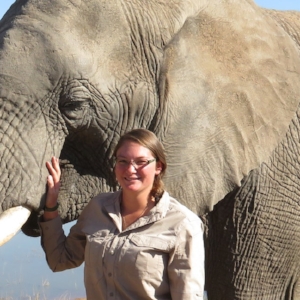
Katrina Leser
Project Coordinator
Katrina Leser was a student intern for our elephant darting project. Through her work in an administrative and organizational capacity, she helped create the foundation for the lab, forging relationships with partners in South Africa as well as acting as a communications liaison for our international partners. She also collected the first samples in the summer of 2017. Katrina earned her Bachelor’s Degree in Animal Science from North Carolina State University and is currently pursuing a doctor of veterinary medicine.
Collaborators and Supporters
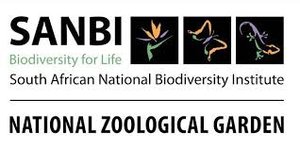
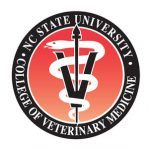

The National Zoological Gardens (NZG) of South Africa, Rory Hensman Conservation Research Unit (RHCRU), and the Animal Forensics Program of the North Carolina State University Forensics Sciences Institute (FSI) have partnered for this project to establish a dedicated genetics laboratory to process and database the DNA of South African elephant populations. Additional support is provided by The Department of Environmental Affairs (DEA), the South African National Biodiversity Institute (SANBI) and the Ecological Defense Group (EDGE), who have endorsed this project and the research being conducted by the team.
